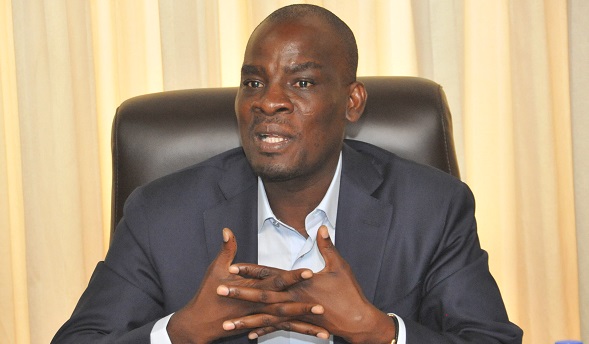The Minority in Parliament has departed from its original stance of rejecting introduction of the Electronic Levy (E-levy) in its entirety, saying they will agree if it is slashed to 1 percent with a threshold of GH¢300.
This, Minority Leader Haruna Iddrisu said, was arrived at after extensively engaging Finance Minister Ken Ofori-Atta on the matter. He said this at the Ghana Chamber of Telecommunications’10th anniversary celebration launch.
“A week ago, it was no, no, no [that] we won’t accept E-levy. But having listened to officials in government including the Minister of Finance, I was convinced to accept a departure from my original ‘no’ to accepting a 1 percent E-levy for the good of the Ghanaian people.
If government is able to make overtures and reach out and say that we want to peg the electronic levy at 1 percent, I don’t have any difficulty convincing my constituencies.
“This should be our contribution to fiscal consolidation and our contribution to ensuring that the economy doesn’t collapse on any of us going into the future,” he said.
Earlier, the minority in Parliament held the position that the E-Levy will take the country backward by affecting small businesses and individuals, especially the poor. This led to some controversies in the House, leading to rejection of the budget on Friday November 26, 2021 after the majority in Parliament walked out.
However, on Tuesday, November 30, the decision was revoked by the majority in Parliament after the minority also walked out.
Meanwhile, other experts have given different views about the levy – with some expressing concerns about the rate and whether it will bring the necessary impact intended by government.
E-levy won’t significantly expand tax base
Contrary to explanations by the finance minister that the e-levy will expand the country’s tax base, auditing firm Deloitte said that might not necessarily happen – warning the levy will rather erode gains chalked up by the mobile money platform.
“Notwithstanding the opportunities this sub-sector presents for government to rake in the much-needed revenue, it is imperative for government to assess the impacts – both intended and unintended – of implementing the E-levy on retail electronic payments and overall financial inclusion in the country.
“Studies have shown that the implementation of similar digital tax schemes in other countries (for instance Kenya) may not widen the tax base significantly, but rather reverse the gains on retail electronic payments and financial inclusion. Imposition of the E-levy has the potential of discouraging the use of electronic payment systems while encouraging a cash preference and financial exclusion, especially for low-income earners,” the auditing giant said in its post-budget report.
Explore other avenues
Deloitte therefore called for rethinking the E-levy’s introduction, recommending that government “draws on lessons from the challenges other countries have encountered with the imposition of similar digital levies.
“More importantly, it is our view that government should explore other means of roping the informal sector into the tax net, which targets actual income generated by the informal sector players. If at all the E-levy is implemented, government could consider making this policy a temporary measure to avoid the erosion of gains made in the financial inclusion policy,” the report stated.
1.75 percent overly punitive
The Institute of Statistical, Social and Economic Research (ISSER) at the University of Ghana also argued in its post-budget analysis that even though it agrees with the introduction of the e-levy in principle, the 1.75 percent rate is overly punitive.
Director of ISSER, Professor Peter Quartey, said given the fiscal pressure on government which requires it to find ways and means to beef-up revenue, the rate should be between 0.5 and 0.75 per cent.
“The rate is on the high side. In my view it’s punitive. We want to understand how this rate was arrived at. Nobody wants to pay tax; but if the rate is reasonable, is it acceptable and people will pay. So, we think the rate should be reviewed downward for people to continue using the service and government can rake in the needed revenue,” he stated.










